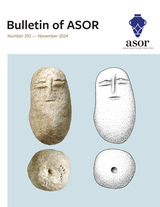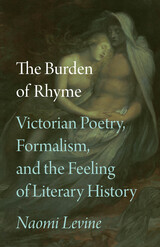7 start with C start with C

The philosopher’s toolkit.
Aristotle, great Greek philosopher, researcher, reasoner, and writer, born at Stagirus in 384 BC, was the son of a physician. He studied under Plato at Athens and taught there (367–347); subsequently he spent three years at the court of a former pupil in Asia Minor. After some time at Mitylene, in 343–342 he was appointed by King Philip of Macedon to be tutor of his teen-aged son Alexander. After Philip’s death in 336, Aristotle became head of his own school (of “Peripatetics”), the Lyceum at Athens. Because of anti-Macedonian feeling there after Alexander’s death in 323, he withdrew to Chalcis in Euboea, where he died in 322.
Nearly all the works Aristotle prepared for publication are lost; the priceless ones extant are lecture-materials, notes, and memoranda (some are spurious). They can be categorized as follows:
I Practical: Nicomachean Ethics; Great Ethics (Magna Moralia); Eudemian Ethics; Politics; Economics (on the good of the family); On Virtues and Vices.
II Logical: Categories; Analytics (Prior and Posterior); Interpretation; Refutations used by Sophists; Topica.
III Physical: Twenty-six works (some suspect) including astronomy, generation and destruction, the senses, memory, sleep, dreams, life, facts about animals, etc.
IV Metaphysics: on being as being.
V Art: Rhetoric and Poetics.
VI Other works including the Constitution of Athens; more works also of doubtful authorship.
VII Fragments of various works such as dialogues on philosophy and literature; and of treatises on rhetoric, politics, and metaphysics.
The Loeb Classical Library edition of Aristotle is in twenty-three volumes.
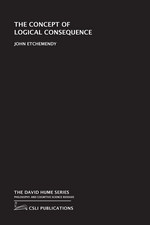

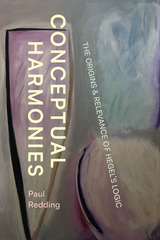
Conceptual Harmonies develops an original account of G. W. F. Hegel’s perplexing Science of Logic from a simple insight: philosophical and mathematical thought have shaped each other since classical times. Situating Science of Logic within the rise of modern mathematics, Redding stresses Hegel’s attention to Pythagorean ratios, Platonic reason, and Aristotle’s geometrically inspired logic. He then explores how later traditions shaped Hegel’s world, through both Leibniz and new forms of algebraic geometry. This enlightening reading recovers an overlooked stream in Hegel’s philosophy that remains, Redding argues, important for contemporary conceptions of logic.
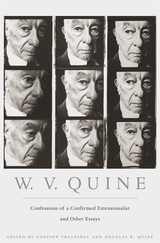
W. V. Quine created a new way of looking at the eternal questions of philosophy and their interconnections. His investigations into semantics and epistemology, ontology and causality, natural kinds, time, space, and individuation transformed the philosophical landscape for generations to come. In the twenty years between his last collection of essays and his death in 2000, Quine continued his work, producing a number of impressive essays in which he deepened, elaborated, and occasionally modified his position on central philosophical issues. The last of these essays, which gives this collection its name, appeared in 2002.
This volume collects the main essays from this last, productive period of Quine’s prodigious career. It also includes some notable earlier essays that were not included in the previous collections although they contain illuminating discussions and are quite often referred to by other philosophers and also by Quine himself in his later writings. These essays, along with several manuscripts published here for the first time, offer a more complete and highly defined picture than ever before of one of the twentieth century’s greatest thinkers working at the height of his powers.
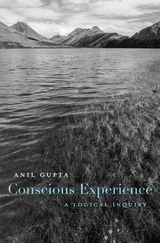
A distinguished philosopher offers a novel account of experience and reason, and develops our understanding of conscious experience and its relationship to thought: a new reformed empiricism.
The role of experience in cognition is a central and ancient philosophical concern. How, theorists ask, can our private experiences guide us to knowledge of a mind-independent reality? Exploring topics in logic, philosophy of mind, and epistemology, Conscious Experience proposes a new answer to this age-old question, explaining how conscious experience contributes to the rationality and content of empirical beliefs.
According to Anil Gupta, this contribution cannot be determined independently of an agent’s conceptual scheme and prior beliefs, but that doesn’t mean it is entirely mind-dependent. While the rational contribution of an experience is not propositional—it does not, for example, provide direct knowledge of the world—it does authorize certain transitions from prior views to new views. In short, the rational contribution of an experience yields a rule for revising views. Gupta shows that this account provides theoretical freedom: it allows the observer to radically reconceive the world in light of empirical findings. Simultaneously, it grants empirical reason significant power to constrain, forcing particular conceptions of self and world on the rational inquirer. These seemingly contrary virtues are reconciled through novel treatments of presentation, appearances, and ostensive definitions.
Collectively, Gupta’s arguments support an original theory: reformed empiricism. He abandons the idea that experience is a source of knowledge and justification. He also abandons the idea that concepts are derived from experience. But reformed empiricism preserves empiricism’s central insight: experience is the supreme epistemic authority. In the resolution of factual disagreements, experience trumps all.

Concerned with criticizing representational theories of knowledge by developing alternative concepts of knowing and communicating, Ian Angus and Lenore Langsdorf bring together eight essays that are united by a common theme: the convergence of philosophy and rhetoric.
In the first chapter, Angus and Langsdorf illustrate the centrality of critical reasoning to the nature of questioning itself, arguing that human inquiry has entered a "new situation" where "the convictions and orientations that have traditionally marked the separation of rhetoric and philosophy—the concern for truth and the focus on persuasion—have begun to converge on a new space that can be defined through the central term discourse."In these essays, this convergence of rhetoric and philosophy is addressed as it presents itself to a variety of interests that transcend the traditional boundaries of these fields.
The two editors, Raymie E. McKerrow, Michael J. Hyde and Craig R. Smith, James W. Hikins and Kenneth S. Zagacki, Calvin O. Schrag and David James Miller, and Richard L. Lanigan map this new space, recognizing that such mapping "simultaneously constitutes the territory mapped."
READERS
Browse our collection.
PUBLISHERS
See BiblioVault's publisher services.
STUDENT SERVICES
Files for college accessibility offices.
UChicago Accessibility Resources
home | accessibility | search | about | contact us
BiblioVault ® 2001 - 2024
The University of Chicago Press





